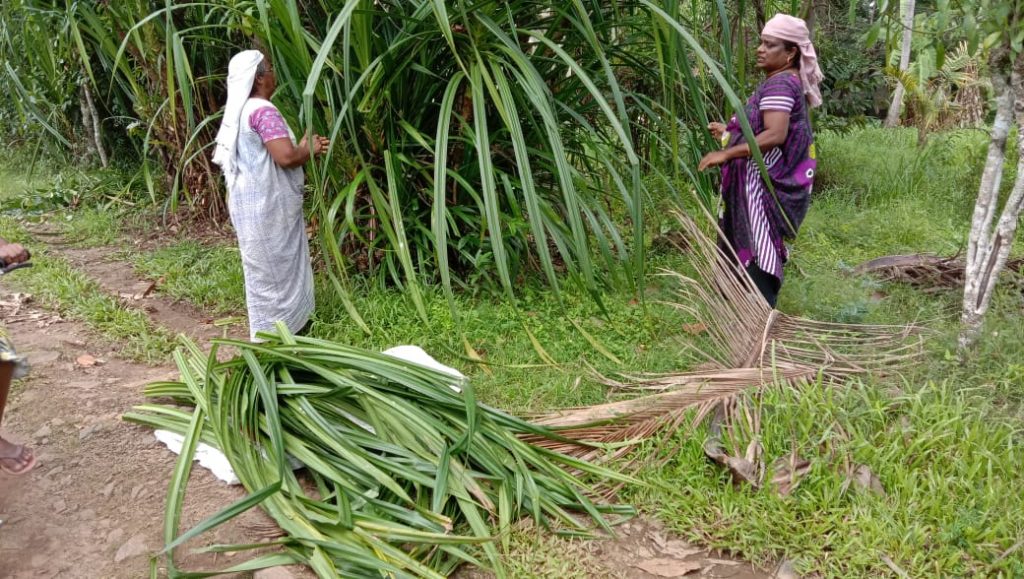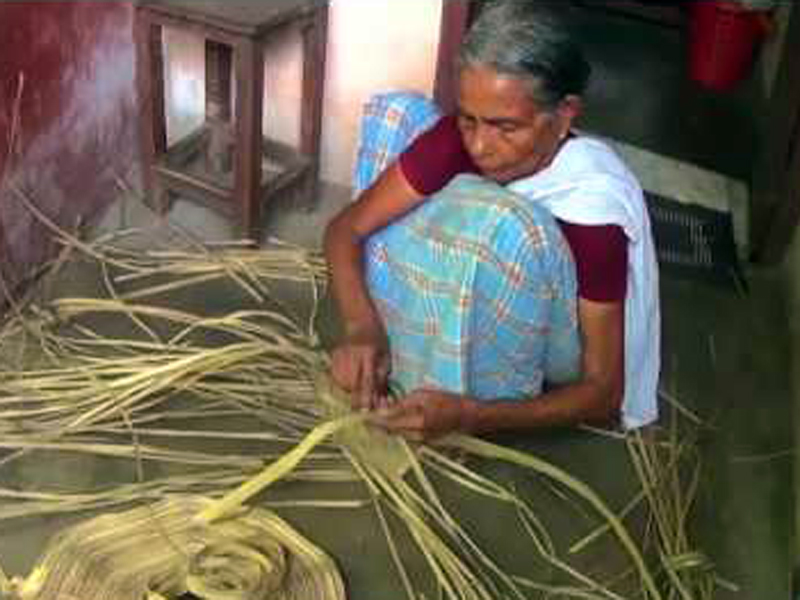“Gandhiji stood for cloths made of cotton and spearheaded the Swadeshi Khadi movement. “

There are many under-explored natural fiber yielding plants conserved in-situ which can be made a part of our life in multiple ways, Screw pine is one among them. The Screw pine plant (Pandanus kaida Kurz) grows wild on the banks of rivers, canals, ponds and backwaters of Kerala and also serves as natural fence. Screw pine craft is a traditional cottage industry in Kerala. Weaving of mats with treated screw pine leaf is one of the oldest crafts practiced by the women in Kerala for more than 800 years. It was started as an empowerment tool for women but later became highly popular due to its eco-friendly form of practice. Screw pine craft of Kerala has been granted GI registration in respect of mats, door mats, wall hangings, bed mats, and prayer mats. The scarcity of screw pine for craft work and the limited marketing opportunities are the major problems faced by the artisan group. The plants were thoughtlessly destroyed from the river banks, canals, ponds and backwaters. The outburst of plastic mats in the market has also added to the situation. Any programme for the revitalization of the Screw pine craft needs to be manifold, starting from ensuring the raw materials to bringing innovative products to creating marketing avenues. As a first step, HDFC Bank supported Parivartan Holistic Rural Development Programme implemented by MSSRF has distributed 5000 screw pine saplings during the last project cycle (2018-2019) at Vaikom region of Kottayam. The plan for 2020-2021 is to strengthen the production systems by providing support to better organize the artisans, build a common facility centre and offer training for improved products in quality and quantity. Once the programme is in place and sustainable market systems are developed, we hope that the local screw pine resources will be sustainably utilized and managed.


Moreover, plant fibers are finding new and diverse applications and usage like dietary fibers, biodegradable films in food industry, natural fiber composites, biopolymers, biofuels, and pharmaceuticals besides improved textiles. Information about wild plants used for obtaining fiber is sparse. Rural communities are completely dependent on forests for their day-to-day need of fiber-yielding plants. Continuous collection of plant material from wild without replenishing them results in loss of germplasm and biodiversity.

MSSBG is proposing a study focused on the under -explored natural fiber yielding plants. This study will address domestication of plants by developing appropriate techniques of cultivation, seed biology and methods of propagation and conservation efforts which will ultimately lead to a sustainable agroecosystem.
